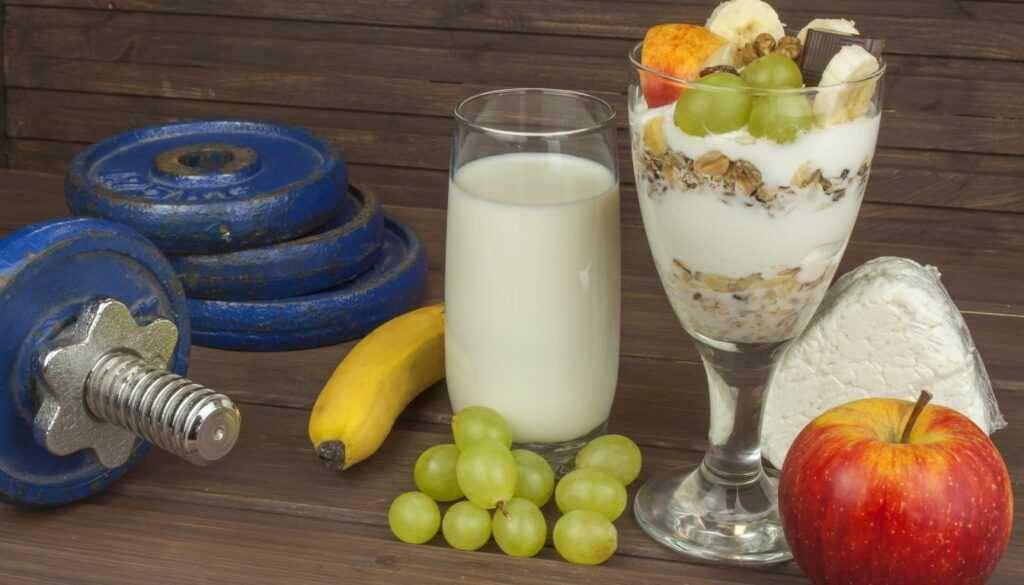Ever felt daunted by the sheer amount of information on building muscle? Believe me, I get it. From years of sifting through facts and myths, as well as trialing methods on myself, I’ve discovered that effective muscle gain is a delicate dance between strategic workouts and balanced nutrition.
This article will help demystify the proven methods of efficient muscle growth for you – prepare to transform your body into a finely chiseled work of art!
Key Takeaways
- Building muscle involves resistance training and proper nutrition. Resistance training, like lifting weights, causes muscles to grow bigger over time. Eating enough protein is important for muscle growth.
- Building muscle has many benefits beyond appearance, including joint support, increased calorie burning even at rest, stronger bones to prevent diseases like osteoporosis, and better blood sugar control.
- To maximize muscle building: lift heavy things often (resistance training), eat more food to fuel muscles and increase metabolism, focus on working big muscle groups like the chest and legs.
- Important principles of muscle building include heavy training to challenge muscles and stimulate growth, rest and recovery for repair and growth of muscles during sleep, consuming carbs post-workout for energy replenishment in the muscles, implementing progressive overload challenge by gradually increasing difficulty in workouts over time,maximizing time under tension during exercise.
Understanding Muscle Building

Muscle building, also known as muscle hypertrophy, is the process of increasing the size and strength of your muscles through targeted exercise and proper nutrition.
Muscle Hypertrophy
Muscle hypertrophy is when our muscles grow bigger. This happens with resistance training, like lifting weights. You must give effort and keep adding weight for your muscles to grow.
Squats and deadlifts are good because they use many joints at once. They can make our muscles get big fast. We also need to eat a lot of protein for our muscles to grow well. Each day, we should eat 1 gram of protein per pound that we weigh.
Benefits of Building Muscle
Building muscle does more than make you look strong. It is good for your health too. Building up muscle helps to support your joints. This can stop harm to your knees and hips later in life.
There are other perks of building muscle as well! When you have more muscle, your body burns more calories — even when resting! Muscles also help keep bones strong to prevent diseases like osteoporosis.
Finally, working on muscles helps control blood sugar levels in the body. Lower blood sugar means lower odds of getting heart disease, strokes or nerve issues.
Muscle’s Role in Calorie Burning, Bone Strength and Blood Levels
Muscles can do more than just make us look strong. They help to burn calories, even when we are at rest. The more muscles you have, the more calories your body burns. This is because muscles need energy to keep going.
Strong muscles also make our bones strong. When you build muscle, your bones become stronger too. Strong bones are less likely to break or get diseases like osteoporosis.
Your blood levels are also better if you have good muscles. Blood sugar levels stay steady and the risk of heart disease goes down. Nerve problems get fewer as well.
This means that muscles keep us healthy in many ways!
Basics of Building Muscle

To maximize muscle building, it is important to eat more and focus on working big muscle groups.
Maximizing Muscle Building
To max out your muscle building, you have to work hard and stick with it. We want to see growth in our bodies, so we lift heavy things often. It’s called resistance training. This makes our bodies work hard and causes little tears in the muscle fibers.
Don’t worry – this is a good thing! Our bodies get busy fixing these tears and making them even stronger than before. This is how muscles grow bigger over time! Eating protein helps this process along as well, so don’t forget to add some to each meal or snack.
Importance of Eating More
Eating more is really important when it comes to building muscle. It’s not just about lifting weights and doing exercises, but also fueling your body with the right nutrients. When you eat more, it helps your muscles grow and get stronger.
Plus, having more muscle mass can increase your metabolism, which means you burn more calories even when you’re resting. Eating enough food is also crucial for keeping your bones strong and preventing conditions like osteoporosis.
And let’s not forget that gaining strength through muscle building can help reduce the risk of heart disease, stroke, and nerve problems. So remember, eating more is key for long-term muscle gain!
Focusing on Big Muscle Groups
Building muscle requires focusing on big muscle groups. This means targeting major muscles like the chest, back, legs, and shoulders. By prioritizing these larger muscle groups in your workouts, you can maximize your efforts and see better results.
Working out these big muscles not only helps increase muscle mass but also promotes overall strength and stability. It is important to include exercises such as squats, bench presses, deadlifts, and shoulder presses in your training routine to effectively target these big muscle groups.
Remember that when it comes to building muscle, quality over quantity is key!
Principles of Muscle Building

In this section, we will discuss the key principles of muscle building. From heavy training to rest and recovery, these strategies are essential for maximizing your gains. Don’t miss out on valuable tips that can take your muscle-building journey to the next level!
Heavy Training
When it comes to building and maintaining muscle mass, heavy training plays a crucial role. This type of training involves lifting weights or performing resistance exercises that challenge your muscles.
Heavy training helps strengthen bones, which is important for preventing conditions like osteoporosis. It also has positive effects on blood sugar levels, reducing the risk of heart disease, stroke, and nerve problems.
Additionally, heavy training improves everyday functionality by making activities like climbing stairs or carrying heavy bags easier. Moreover, it stimulates muscle hypertrophy, which refers to the increase in growth of muscle cells.
